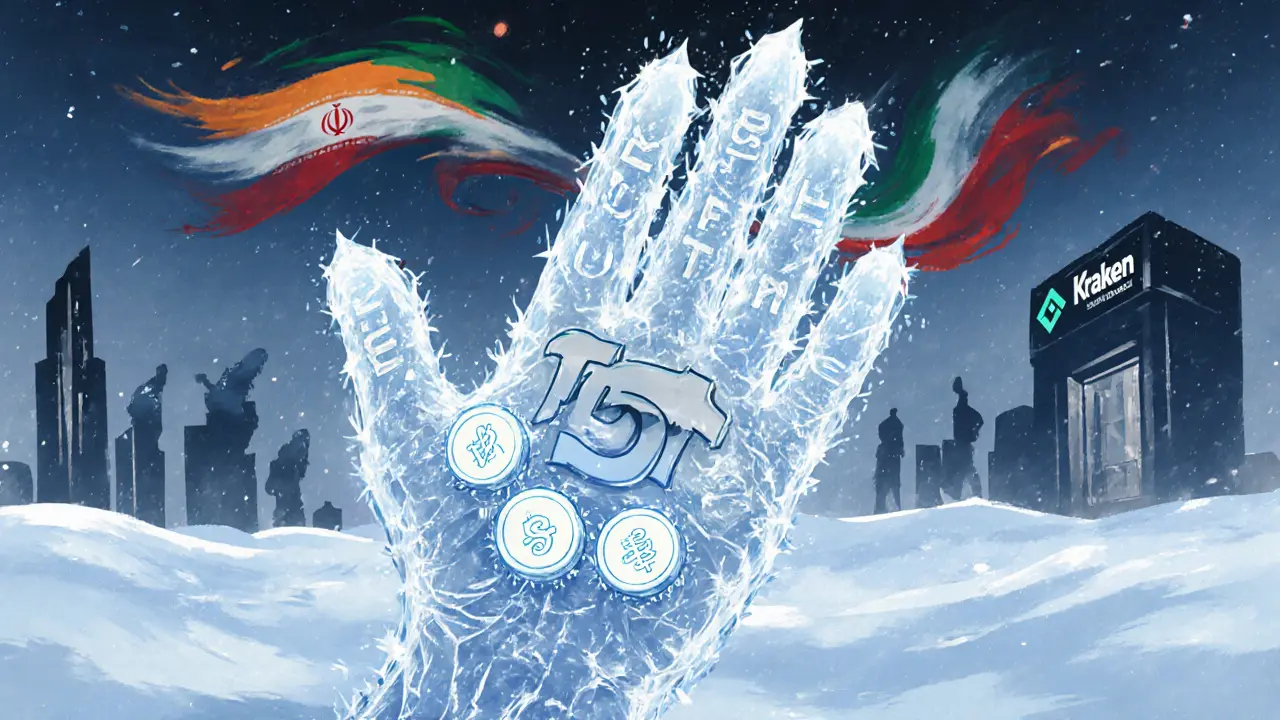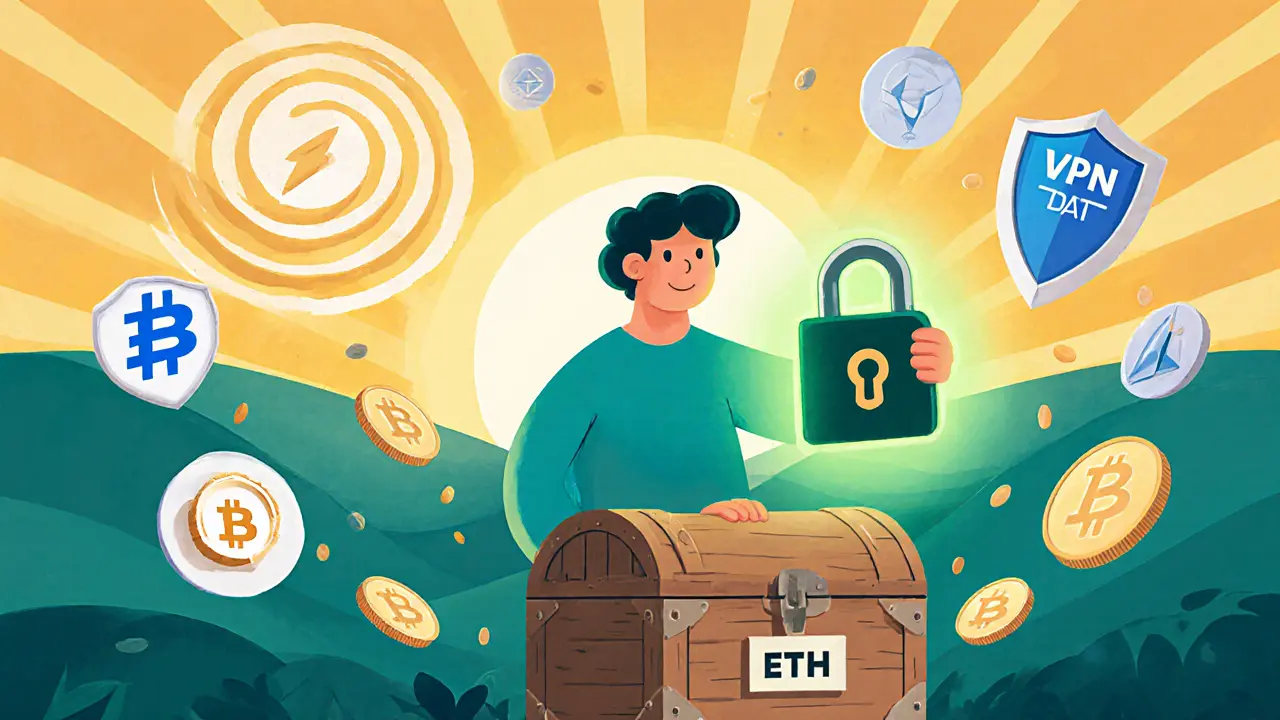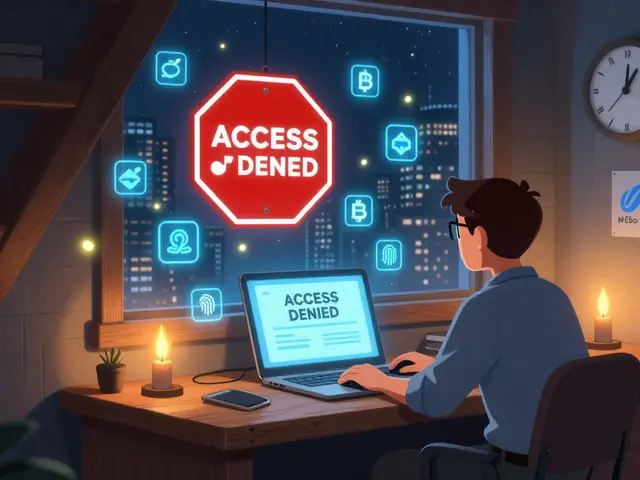Crypto Exchange Risk Checker
Risk Assessment Results
Nobitex Sanctions & Security
Linked to IRGC wallets, $90M hack, Tether freeze involvement.
Binance Compliance Freeze
Strict OFAC screening, frequent account bans for Iranian IPs.
Coinbase Compliance Freeze
US-registered, automatic asset seizure for sanctioned users.
Kraken Compliance Freeze
Real-time sanctions checks, has closed Iranian accounts.
Unregulated P2P Sites Fraud & No Recourse
Lack of security, no legal protection, high exit-scam rate.
Stablecoin-only Platforms Regulatory Caps
Subject to $5k purchase / $10k holding limits, risk of government seizure.
Iranian crypto enthusiasts are stuck between heavy international sanctions and a rapidly shifting domestic regulatory landscape. The result? A growing list of exchanges that can freeze assets, expose users to legal trouble, or simply disappear overnight. This guide pinpoints the platforms you should stay clear of, explains why they’re risky, and offers practical steps to protect your digital money.
Key Takeaways
- Exchanges that cooperate fully with U.S. and UN sanctions (e.g., Binance, Coinbase) can freeze Iranian accounts without warning.
- The domestically dominant platform Nobitex Iran’s largest crypto exchange, serving over 11million users, but flagged for sanctions evasion and a $90million hack is a high‑risk target.
- Stablecoin‑centric services, especially those handling USDT, are now subject to strict purchase and holding caps imposed by Iran’s Central Bank.
- Any platform linked to the Islamic Revolutionary Guard Corps (IRGC) or promoted through government‑affiliated media faces immediate asset seizure risk.
- Unregulated peer‑to‑peer marketplaces lack legal recourse and are hotbeds for exit scams.
Sanctions and the Tether Freeze
On July22025 Tether the issuer of the USDT stablecoin, which complies with U.S. Treasury Office of Foreign Assets Control (OFAC) sanctions executed its largest‑ever freeze of Iranian‑linked wallets, blocking 42 addresses. More than half of those wallets were tied to Nobitex. The freeze showed that any exchange heavily reliant on USDT can become a direct conduit for asset seizures. The ripple effect was immediate: users on global platforms received warnings to pull USDT out of Iranian accounts, and many were forced to migrate to alternative stablecoins like DAI on the Polygon network. If you keep funds on an exchange that routes large volumes of USDT, you are essentially handing a compliance handoff to a U.S.‑based entity that can lock your assets on a whim.
Domestic Regulatory Pressures
Iran’s Central Bank (the Iranian Central Bank the country's monetary authority, responsible for enforcing crypto licensing and AML/CTF rules) shut down rial‑based payment gateways for crypto exchanges in early2025. The move forced every operating exchange to obtain a government license and submit full transaction logs. Later that year the bank capped individual stablecoin purchases at $5,000 annually and holdings at $10,000. Breaching these limits can trigger one‑month compliance notices and undefined penalties, making platforms that facilitate large stablecoin trades especially dangerous for Iranian users.

High‑Risk International Exchanges
Tier‑1 exchanges that enforce strict OFAC screening routinely block Iranian users. Below are the most common culprits:
- Binance the world’s largest crypto exchange by volume, known for aggressive sanctions compliance
- Coinbase a U.S.‑registered exchange that automatically freezes accounts linked to sanctioned jurisdictions
- Kraken a veteran exchange that applies real‑time sanctions screening and has a history of closing Iranian accounts
These platforms may appear safe because of their reputation, but their compliance engines view any Iranian IP address or bank link as a red flag. The result: frozen funds, lost access, and no avenue for appeal.
Stablecoin‑Focused Platforms
Beyond USDT, other stablecoins are under scrutiny. DAI, an algorithmic stablecoin on Ethereum, saw a surge in Iranian adoption after the Tether freeze. However, exchanges that enable large‑scale DAI trading are now on the radar of the Iranian Central Bank for breaching the new $5,000 purchase cap. Polygon, a layer‑2 scaling solution, hosts many DAI bridges. While technically less risky than USDT, using Polygon‑based bridges still requires a compliant exchange to move funds off‑chain. If the exchange fails to report or is later deemed non‑compliant, your DAI could be frozen just like USDT.
IRGC‑Linked Platforms and Government‑Affiliated Promotions
The Islamic Revolutionary Guard Corps (IRGC) has a covert digital presence that influences crypto sentiment. Tasnim News Agency, an IRGC‑affiliated outlet, recently warned that “thousands of accounts” belonging to Iranian users have already been blocked by Tether. Any exchange promoted through such channels inherits a high probability of being targeted by sanctions enforcement. Platforms with documented IRGC connections, whether through ownership, advisory boards, or preferential treatment, are essentially marked for immediate action by both U.S. and Iranian authorities. Even if you trust the service, the political risk outweighs any potential benefit.
Unregulated Peer‑to‑Peer (P2P) Markets
When licensed exchanges tighten, many turn to informal P2P sites. These platforms lack any legal framework, customer support, or security audits. Scams proliferate-users report losing funds to “exit scams” where the operator disappears after collecting deposits. Because there is no recourse, a single breach can wipe out thousands of dollars. The Iranian FinTech Association repeatedly warned that the push toward unregulated markets could expose 15million crypto users to fraud.

Comparison Table: Exchanges to Avoid
| Exchange | Main Risk Category | Why It’s Dangerous |
|---|---|---|
| Nobitex | Sanctions & Security | Linked to IRGC wallets, $90M hack, Tether freeze involvement |
| Binance | Compliance Freeze | Strict OFAC screening, frequent account bans for Iranian IPs |
| Coinbase | Compliance Freeze | US‑registered, automatic asset seizure for sanctioned users |
| Kraken | Compliance Freeze | Real‑time sanctions checks, has closed Iranian accounts |
| Unregulated P2P sites | Fraud & No Recourse | Lack of security, no legal protection, high exit‑scam rate |
| Stablecoin‑only platforms | Regulatory Caps | Subject to $5k purchase / $10k holding limits, risk of government seizure |
How to Stay Safe
- Prefer decentralized, non‑custodial wallets where you control the private keys. Hardware wallets (Ledger, Trezor) keep funds off‑exchange.
- If you must use an exchange, choose one that does not require Iranian banking details and operates under a jurisdiction with neutral crypto policies (e.g., some European peer‑to‑peer services).
- Keep stablecoin exposure below the Iranian Central Bank’s $10,000 holding cap. Split holdings across multiple compliant assets (BTC, ETH) to avoid triggering limits.
- Regularly monitor sanctions lists (OFAC, UN) for any newly added entities. A quick check before depositing can save you from future freezes.
- Stay away from platforms promoted on IRGC‑linked media or government‑affiliated channels. If the promotion feels political, the risk is high.
- Back up your wallet seed phrases offline and store them in separate, secure locations.
Next‑Step Checklist
- Audit all current exchange accounts. Close any tied to the six exchanges listed in the table.
- Transfer assets to a hardware wallet or a trusted non‑custodial service.
- Record the transaction IDs and timestamps for future tax reporting (Iran’s new speculation tax applies).
- Set up alerts for any changes in Iranian sanctions policy or Central Bank stablecoin caps.
- Join reputable Iranian crypto communities that focus on privacy and security best practices.
Frequently Asked Questions
Can I use Binance if I’m an Iranian citizen?
No. Binance applies strict OFAC compliance, meaning any account linked to an Iranian IP address, phone number, or bank record will be frozen or permanently banned.
Is it safe to keep USDT on a local Iranian exchange?
Very risky. The July2025 Tether freeze showed that USDT tied to Iranian wallets can be confiscated in a single action. Prefer non‑custodial wallets for stablecoins.
What alternatives exist for trading without violating sanctions?
Decentralized exchanges (Uniswap, SushiSwap) accessed via a VPN and a self‑custody wallet allow peer‑to‑peer swaps without a central authority. Keep trade sizes modest to stay under Iran’s stablecoin caps.
How do I know if an exchange is linked to the IRGC?
Check reputable crypto‑risk databases (Elliptic, Chainalysis) for sanctions tags. If the platform appears in Iranian state media or is promoted by Tasnim News, treat it as IRGC‑affiliated.
What should I do if my account gets frozen?
First, stop trying to contact the exchange’s support- they rarely respond to sanctioned users. Move any remaining unfrozen assets to a hardware wallet, then seek legal advice from a specialist familiar with Iranian sanctions law.






Sam Kessler
October 10, 2025 AT 08:23Let’s be brutally honest here: if you’re still using custodial exchanges in 2025, you’re not just naive-you’re actively participating in a systemic failure of financial autonomy. The Tether freeze wasn’t an anomaly; it was the logical endpoint of centralized compliance infrastructure. USDT is not money-it’s a liability wrapped in a blockchain veneer. The Iranian Central Bank’s $5k cap? A desperate attempt to control the uncontrollable. The only path to sovereignty is non-custodial: Ledger + Uniswap + Polygon DAI, no intermediaries, no KYC, no illusions. If your seed phrase isn’t handwritten and buried in a waterproof tube, you’re already compromised.
Steve Roberts
October 10, 2025 AT 13:59Oh please. You’re all acting like this is some revolutionary guide when it’s just recycled fearmongering. Binance doesn’t ‘freeze’ accounts-it enforces laws that *everyone* agrees on. If you’re in Iran and using crypto to bypass sanctions, you’re not a freedom fighter, you’re a sanction violator. And Nobitex? A $90M hack and IRGC ties? That’s not a risk-it’s a dumpster fire with a website. Stop romanticizing chaos and get a real job.
John Dixon
October 10, 2025 AT 23:13Wow. Just… wow. You actually wrote a 2,000-word essay titled ‘Crypto Exchanges to Avoid’… and didn’t mention that the entire premise is built on the assumption that Iranians should be allowed to trade crypto at all? Who gave you the authority to dictate what 90 million people can do with their money? You sound like a compliance officer who got bored and started a blog. Also-‘self-custody’? Sure. Until the IRGC seizes your hardware wallet. Then what? You cry into your cold brew?
Brody Dixon
October 11, 2025 AT 11:19I just want to say thank you for writing this. It’s clear, thorough, and doesn’t sugarcoat the danger-but also doesn’t demonize people trying to survive under impossible conditions. I’ve seen too many posts that treat Iranian crypto users like criminals instead of people trying to protect their savings from inflation and corruption. The hardware wallet advice? Spot on. And the reminder to avoid IRGC-linked platforms? Critical. Stay safe out there, everyone. You’re not alone.
Mike Kimberly
October 12, 2025 AT 08:58There’s a profound irony in the fact that the very mechanisms designed to enforce global financial order-OFAC, KYC, centralized stablecoin issuers-are now the same tools that are systematically disenfranchising ordinary citizens in sanctioned economies. The solution isn’t to abandon crypto; it’s to accelerate the transition to truly decentralized infrastructure: permissionless protocols, privacy-preserving bridges, and community-governed liquidity pools. The Iranian user isn’t trying to ‘outsmart’ sanctions-they’re trying to preserve dignity in a world where financial access is weaponized. DAI on Polygon isn’t a loophole; it’s an act of quiet resistance. And while the Central Bank’s caps may be legally enforceable, they’re morally indefensible when inflation hits 40% and the rial is worth less than the paper it’s printed on. This isn’t about evasion-it’s about survival. And survival, in the digital age, requires not just technical literacy, but moral courage.